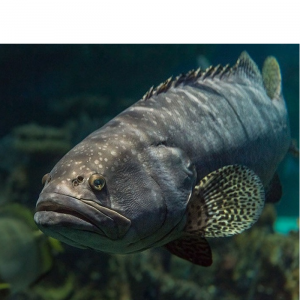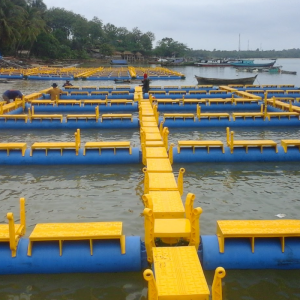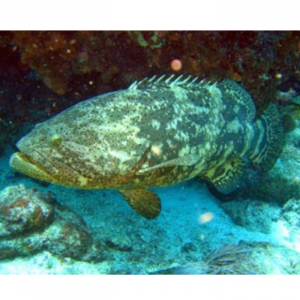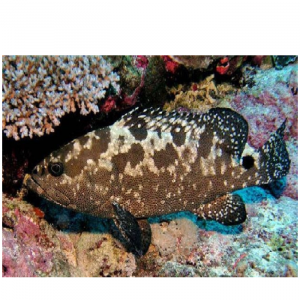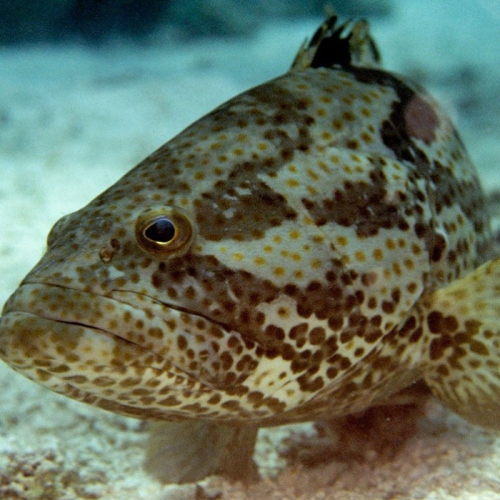
Stimulating Immune for Grouper
| Mon, 20 Jan 2020 - 14:18
A recent study has shown that sodium alginate is a natural and a safe immune stimulant for grouper.
Grouper ( Epinephelus coioides ) is one of the high economic value marine fish, delicious meat, they are grown popularly in Asian countries such as China, Japan, Malaysia, Singapore, Thailand. In Vietnam, they are being raised mainly in provinces and cities: Quang Ninh, Hai Phong, Nghe An, Hue, Khanh Hoa, Ba Ria - Vung Tau ... There are only a few models of fish farming in earthen ponds, the rest are raised in cages.
Currently, in our country domestic demand and grouper exports are relatively high, so grouper in the wild is being overfished. Therefore, rearing is increasingly being promoted by many forms of intensive and semi-intensive farming. However, the development of a rapid farming model has led to an increase in the number of deadly fish diseases with a high loss rate.
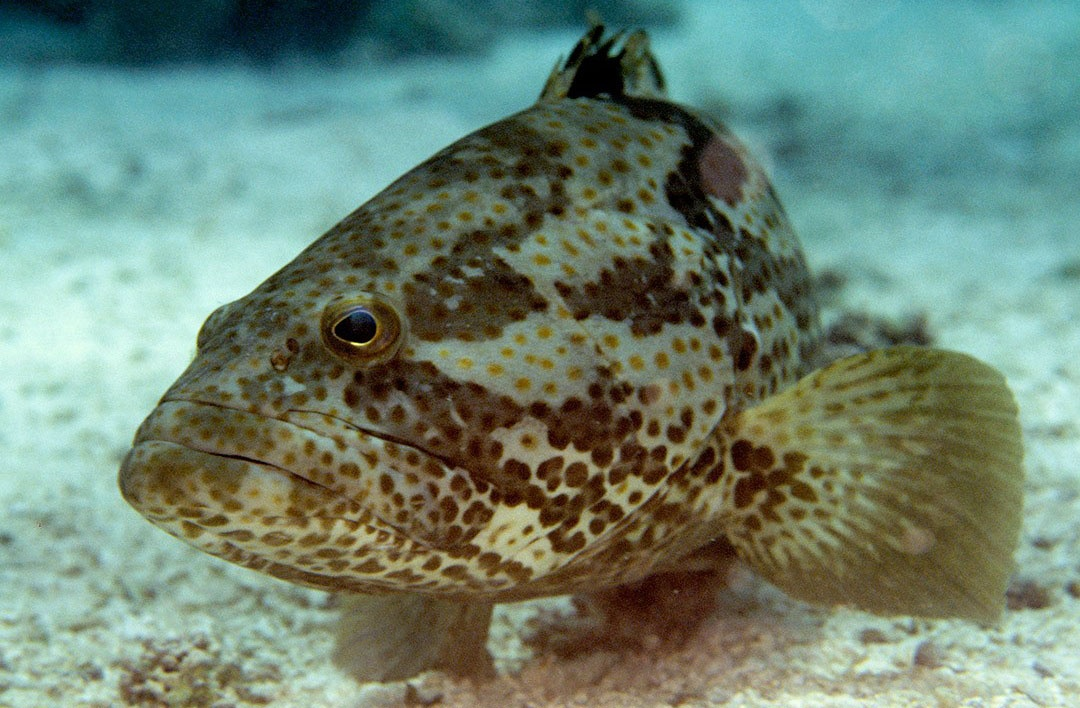
Common diseases in marine fishes are diseases caused by parasites, viruses, and bacteria. In which, hemorrhagic septicemia in fish caused by bacteria, Photobacterium sp. is a dangerous agent, causing mortality of about 80% in farmed fish. P. damselae bacteria can attack and cause disease in marine fish farmed at all stages of fish development, from larval stages, fingerlings to grow-out fish. When sick, the fish can manifest in the chronic and acute form, manifestation of pasteurellosis such as ulceration on the skin, the appearance of white cream nodules or white tubercules granulomas in some internal organs, causing visceral necrosis, concentrated in the kidneys and spleen, causing widespread infection and necrosis (Evelyn, 1996, Romalde, 2002; Bames et al., 2005). Diseased fish can die after 5-10 days causing economic losses in countries like Japan, USA, France, Spain, Greece and Turkey. In Vietnam, the disease is distributed in almost all farming areas across the country.
Currently, marine fish farmers mainly use antibiotics in treating diseases. To minimize antibiotic use, research is needed on immunosuppressive products. Sodium alginate is the sodium salt of alginic acid extracted from the cell walls of marine algae especially brown algae.
Many studies of alginic acid supplementation in the diet have yielded high results, typically in the diet of young tilapia (Oreochromis niloticus) , showing the improvement of the health and intestinal tract of fish and copper. Supplementation of alginic acid in juvenile salmon also showed growth and enhanced innate immune responses. The 4g alginic acid/kg supplement for sturgeon also contributes to the growth and immune efficiency in the fish. In addition, the sodium alginate extracted from brown algae has stimulated the strengthening of non-specific carp defenses against Edwardsiella tarda (Fujiki, Matsuyama, & Yano, 1994).
Research on application of sodium alginate in grouper
Grouper fed a diet containing sodium alginate at 0 (control, named C) and 1.0 g / kg (named S) at 28 ° C (two groups named C- 28 and S-28) and 20 ° C (two groups named C-20 and S-20) for 12 days and then challenged with Photobacterium damselae.
Result
At the end of the experiment, supplemental treatment of sodium alginate S-28 showed that lysozyme activity, phagocytic activity, superoxide effuse and respiratory activity were higher than C-28 and S-20 and achieved the lowest value is the C-20 group.
The sodium alginate supplementation treatments showed that the stress index, cortisol, glucose, and glucose levels in serum were significantly lower than the non-supplemented treatment, the sodium alginate supplementation S28 had a lower stress index. compared to group C28 and reached the highest stress value in group C20.
Grouper cultured at 28 ° C was more susceptible to Photobacterium damsela than at 20 ° C. Fish after challenge with P. damselae showed the survival rate of the S20 group reached the highest value of 100% after 144 hours, while C-20 and S-28 groups reached 70.0% and 56.7% and the lowest was the C-28 treatment with 30.0% survival.
Our results show that the use of sodium alginate in the diet has been shown to reduce stress levels, enhance immunity against pathogens caused by the bacteria Photobacterium damselae .
The study found that sodium alginate should be added to a diet of grouper cultured at 28 ° C to limit susceptibility to Photobacterium damselae. The results of the study serve as a scientific basis for further studies to contribute to better disease management in grouper/cage culture in provinces in particular and in Vietnam in general.
Source: Tepbac













